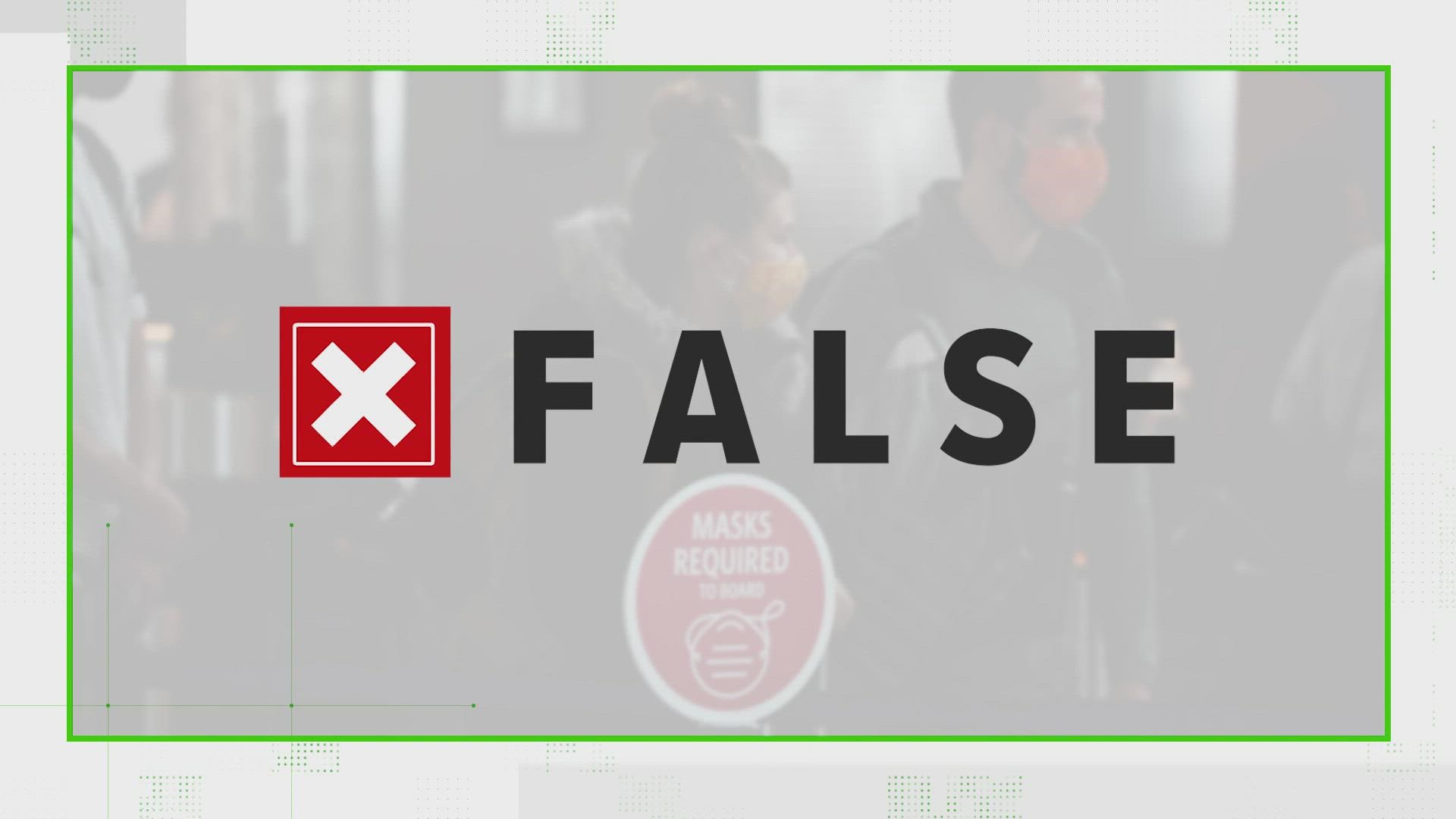DALLAS — In September, Delta Air Lines brought up the idea of airlines sharing their private no-fly lists.
These lists are different than the federal no-fly list maintained by the Federal Bureau of Investigation (FBI).
This has caused viewers to send WFAA some no-fly list questions.
THE QUESTION
Are airlines using a new no-fly list?
THE SOURCE
- Larry Wansley, former managing director of corporate security for American Airlines
- Charles Stotler, Co-Director of Center for Air and Space Law at The University of Mississippi School of Law
- Gary Evans, aviation attorney and founder of Coats and Evans, P.C.
- Transportation Security Administration (TSA)
THE ANSWER
No, there aren't any new no-fly lists being used, but the ways you can get on the private airlines' no-fly lists have been expanded, in many cases, since the pandemic began.
WHAT WE FOUND
The federal no-fly list was created in response to the 9/11 terrorist attack, along with the Transportation Security Administration (TSA), which is an agency under the U.S. Department of Homeland Security that oversees air travel security.
"This was a first step in terms of putting all that information together for the benefit, obviously of the country, airlines and so forth," Wansley explained.
The list is maintained by the FBI's Terrorist Screening Center and is connected to the department's National Crime Information Center database.
Details about how it is maintained and how people get on it are purposefully murky.
"There's certainly a great deal of unknown or mystery about it," Wansley said. "They're not going to show all their whole cards. If you wind up on the no-fly list, the feds aren't telling you a lot, but you've done something. And there's something that's gotten you on that list."
Airlines have their own separate, private no-fly lists. These have been around before. However, they have been talked about - and used more frequently - since the pandemic started, due to unruly passengers. Many situations have been related to people not wearing masks required on a flight.
RELATED: Yes, 5G can interfere with airplanes, but it’s unclear whether it will cause ‘harmful interference’
Private airlines have a right the federal government doesn't have, which is known as "permissive refusal." It falls under Section 44902(b) of the Federal Aviation Act (FAA), and means pilots and airlines have broad authority to not accept a passenger.
That's because the FBI is acting as a "government actor" while an airline is acting as a "private actor," according to Evans.
"A private actor is not normally bound by constitutional protections because they're private entities," Evans said. "If you go to an individual business, you have no right to enter a particular business. You have no right to demand a private business do business with you."
While air carriers do have this broad authority, there are limits - they cannot put someone on a private no-fly list due to discriminatory reasons.
"They can refuse to carry anyone, so long as their decision is not arbitrary or capricious," Stotler said. "The federal lists are based upon other criteria, not necessarily activities that a passenger does on the flight. Where the airline lists, are based upon activities on the flight."
Unlike private airlines, the federal no-fly list requires due process, meaning you have a right to request, submit and receive additional information. However, the government's response likely won't include the main reason you're on the list, Evans said.
"You have a right as a United States citizen to have notice of the charges against you and a right to be heard in response to those charges," Evans said. "That's the part that's going to be missing on the private side."
There have been issues at times with the wrong people getting put on the FBI's list or not being taken off, according to Stotler.
"The connection between the no-fly lists and the National Crime Information Center is problematic because, oftentimes, a warrant will be uploaded to the National Crime Information List, but then the warrant will go away and it will turn out the person hadn't done anything wrong," Stotler said. "But the warrant might remain on that list. It's not updated very often. There are problems with the no-fly list from the perspective of clarity on what the criteria are to get on it, how you get off it and then inaccuracies at times."

